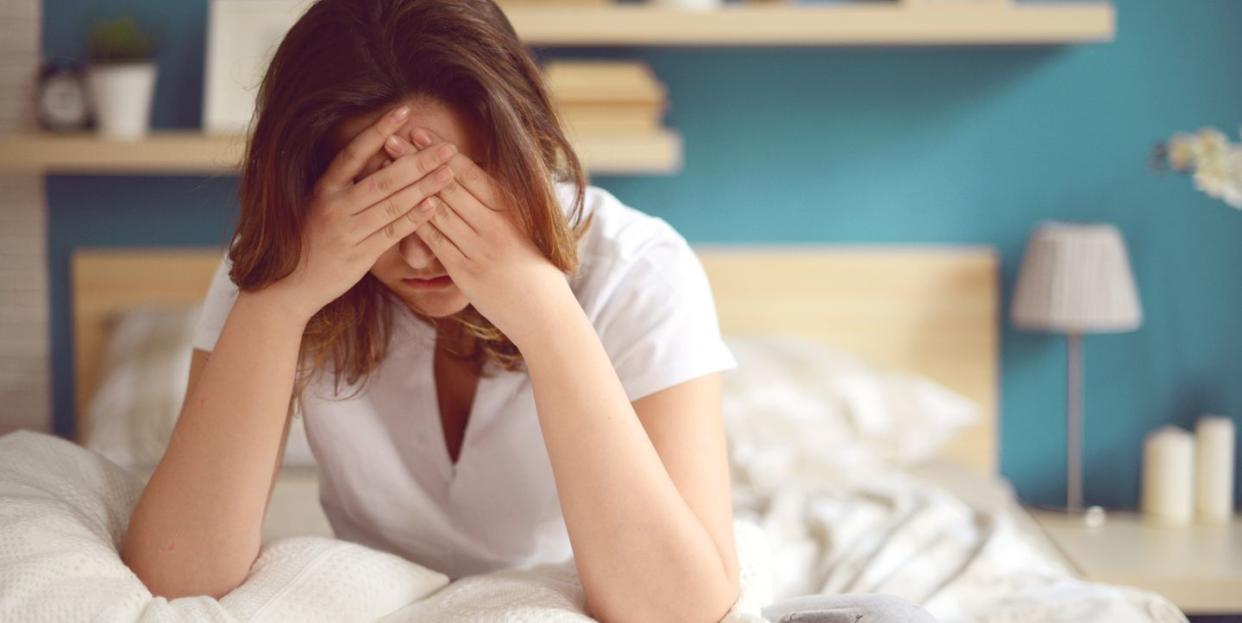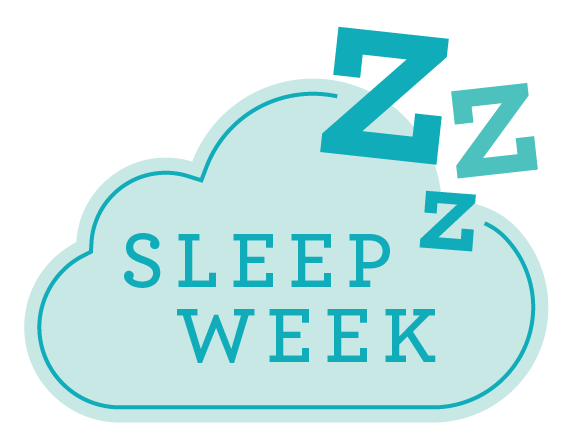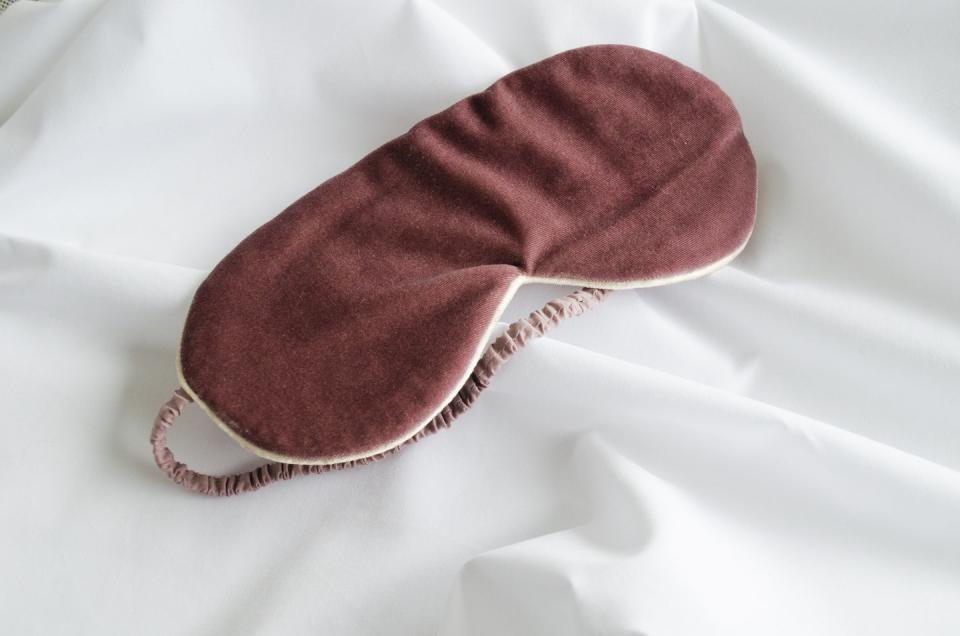Taking Daytime Naps Won't Make Up for Lost Sleep, Doctors Say


Real talk: Netflix's autoplay feature makes it all too easy to slide right into the next episode of Workin' Moms - and miss out on a potential extra hour (or two) of sleep.
If you're not getting enough sleep on a regular basis, those late-night binge sessions can cause not only a total lack of focus the next day, but also raise your risk of chronic disease like heart disease and diabetes.
There's no official amount of time you need to snooze in order to avoid sleep deprivation. The amount of sleep you need depends on who you are, says Pradeep Bollu, M.D., a board-certified sleep specialist and neurologist with MU Health Care.
"Every person has their own unique biological sleep requirements," he says. "In most adults, it’s between 7-8 hours. Some people need just 6 hours or less. Some people need 8 hours or more."
Getting the right amount of sleep has a very real pay-off: "Sleep is necessary to promote three general things: alertness, performance, and general health," says Camilo A. Ruiz, D.O., the Medical Director at Choice Physicians Sleep Center in South Florida. "When you disrupt either the sleep time or the quality of the sleep, you end up with significant detriments in each of those areas."
The Stages of Sleep Deprivation
There are two kinds of sleep deprivation, according to Dr. Bollu: acute and chronic. The acute kind is when you go one night - or a few nights - without sleep. The chronic kind is when you miss out on those seven (or more) hours per night on a consistent basis (weeks or even months).
Acute Sleep Deprivation
If you ever pulled an all-nighter in college, then you're familiar with some of the consequences:
Increased sleepiness and fatigue
Decreased attention span
Trouble focusing
Reduced vigilance
Increased risk of accidents
Difficulty staying awake
The reason behind these not-so-pleasant effects isn't just a lack of sleep, but a lack of deep sleep, Dr. Bollu says. Spending enough time in this sleep stage is what helps you feel focused and alert when you wake up - and therefore makes those all-nighters somewhat counterproductive.
"When you get into deep sleep, it promotes memory creation and solidifies things we’ve picked up during the day and stores them," Dr. Ruiz adds. "Everybody has stayed up late studying for a test, but we tell people not to do that because obviously the performance and alertness that come with sleep is lost the following day."
Staying awake for multiple days is also possible - just ask Randy Gardner. In 1963, the then-17-year-old decided to break the Guinness World Record for going without sleep for a city science fair experiment. The San Diego resident lasted 264 hours, a.k.a. 11 days, a mark that stood unbroken until Guinness did away with the category due to the potential health dangers. In addition to the effects listed above, Dr. Ruiz says further acute sleep deprivation leads to:
Moodiness and irritability
Difficulty concentrating
Difficulty naming things
Delusional thinking
Memory lapses
Hallucinations
Paranoia
Dr. Bollu notes that Gardner may not have been fully awake for all 11 days. With these types of attempts, the sleep-deprived subject often slips into what's called a "microsleep," which is a momentary lapse during an awake state into a state of partial sleep. "Technically microsleep is still sleep, but it’s not consolidated," he explains. "Physiologically, the brain is trying to go to sleep, but it's being pushed to stay awake."
Microsleeping may explain the hallucinations experienced during prolonged acute sleep deprivation - they could indicate that the person entered a dream state, he adds.
Chronic Sleep Deprivation
World record attempts aren't the way sleep deprivation affects most of us though. The more likely scenario: You're not getting enough sleep on the reg, and it's hurting your health in more ways than one. The Centers for Disease Control and Prevention estimate that more than a third of American adults consistently sleep less than seven hours per day.
Racking up sleep debt over days, weeks, months, and years can raise your risk of a whole host of health problems, including:
Cardiovascular disease (which can cause a heart attack or stroke)
Diabetes
Weight gain and obesity
Decreased immune function
High blood pressure
Neurological diseases, like dementia and seizures
Psychiatric problems
Worsening pain
The reason? Missing out on sleep can affect how your body functions, including causing changes to your hormones, immune function, and temperature regulation. "Some of these changes you can see in direct correlation, like with increased stroke risk or heart disease," Dr. Bollu says. "Sometimes we don't have a strong reason why they're happening. All we can say is that with chronic sleep deprivation, a lot of things will go wrong."
In fact, some animal studies have shown that chronic sleep deprivation can do physical damage to the brain, injuring neurons and causing inflammatory stress.
How to Catch Up on Sleep

The easiest way to counteract the effects of acute and chronic sleep deprivation: sleep more. But not all sleep is created equal. Naps won't make up for lost sleep the same way going to bed earlier in the P.M. will. That's because of the way our body's set up with two complementary systems, Dr. Bollu explains.
The first is an alerting system that keeps us awake during the day and then shuts down at night. The second is a system that keeps us asleep at night and shuts down during the day. "Anytime you take a nap, it's never going to be as good as nighttime sleep because there is an opposing force acting against your daytime sleep," he says.
If you've really had a rough night of sleep, the best plan of attack is to take a short nap in the afternoon and then head to bed an hour or two before your regular bedtime that night to pay off your sleep debt. As for Randy Gardner, he slept for 14 hours after his successful world record attempt - and he told NPR he's never trying it again.
('You Might Also Like',)

